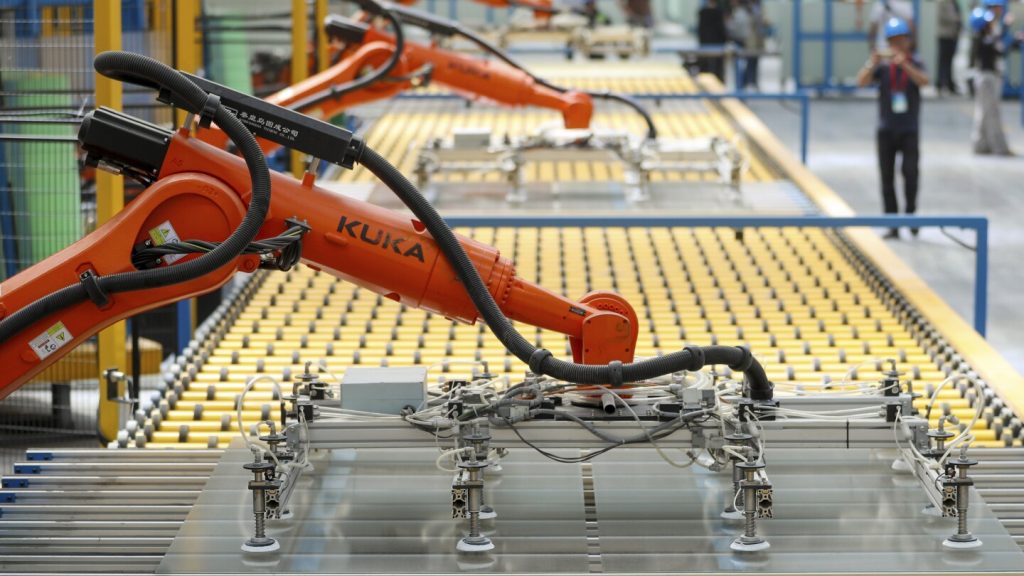The factory activity in China slowed more than expected in May, according to an official survey released by the China Federation of Logistics and Purchasing. The manufacturing purchasing managers index fell to 49.5 from 50.4 in April, indicating a drop in output and weaker new orders and export orders. This suggests slack demand in the economy, which is already burdened by a crisis in the property industry. Analysts had expected the manufacturing PMI to be just above 50, but uncertainties over access to the U.S. market are growing due to potential new tariffs imposed by President Joe Biden.
In an effort to stabilize the housing market, China recently relaxed down-payment requirements and cut minimum interest rates on some home loans. The housing market has been suffering from falling prices, stalled construction, and defaults by developers following a government crackdown on excess borrowing. The survey also showed a slight slowdown in construction, as Chinese families hold much of their wealth in property and the prolonged downturn has had a negative impact on consumer spending.
Economists believe that longer term reforms are needed to raise consumer confidence and sustain long-term growth in China. The International Monetary Fund recently raised its forecast for China’s economic growth to 5% for this year, but warned that more needs to be done to shift the economy away from a reliance on exports and investment in construction as the population ages. Analysts predict a pick-up in economic activity over the coming months due to fiscal support and new property stimulus, but caution that structural challenges remain a key issue for the economy.
Despite the recent slowdown in factory activity, some analysts believe that the sentiment effects due to potential new tariffs may have contributed to the decline in new orders and export orders. President Biden’s stance on trade with China, as well as the lingering impact of tariffs imposed by former President Donald Trump, could continue to add pressure on the Chinese economy. The government’s efforts to stabilize the housing market and boost consumer spending will be crucial in navigating through the current challenges and sustaining economic growth in the long run.
The Chinese economy is facing multiple challenges, including the ongoing crisis in the property industry and uncertainties over trade relations with the U.S. The government’s recent measures to stimulate the housing market and consumer spending will play a key role in stabilizing the economy in the short term. However, long-term reforms are necessary to shift the economy away from its reliance on exports and investment in construction. Analysts believe that sustained growth will require structural changes to address the underlying issues facing the Chinese economy.


